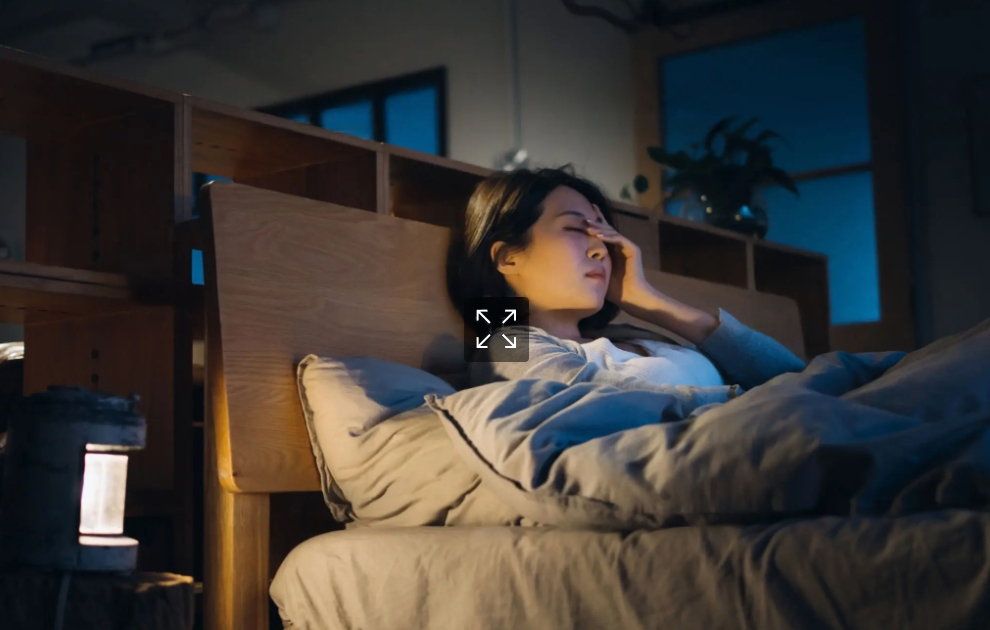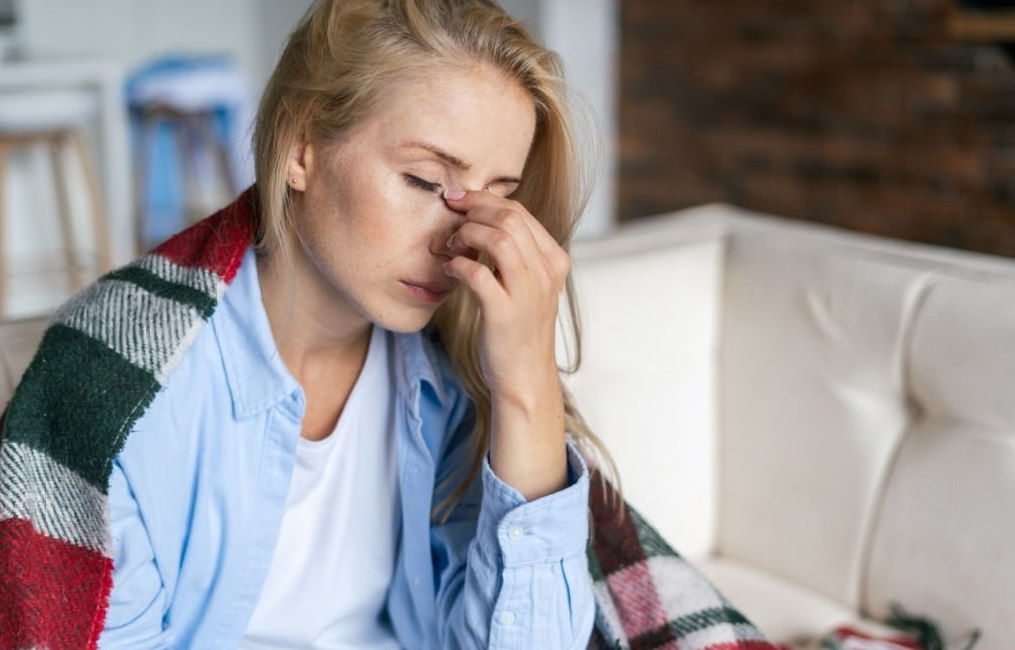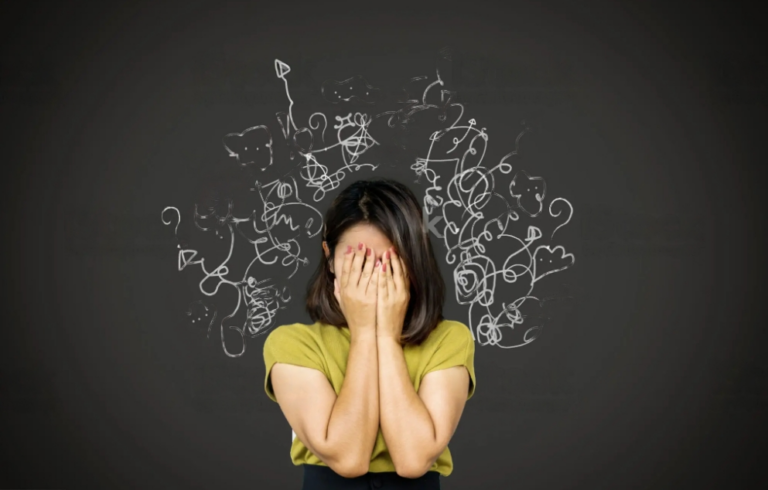Unravelling the Mystery: Understanding Anxiety Symptoms and How to Cope
Unravelling the Mystery: Understanding Anxiety Symptoms and How to Cope
What is Anxiety?
Anxiety, a prevalent mental health concern, affects millions of people worldwide. In this article, we aim to briefly explain what anxiety is and highlight the importance of understanding its symptoms. By shedding light on this topic, we hope to foster awareness and empower individuals to take charge of their mental well-being.
Anxiety is a natural stress response, characterized by worry, fear, and unease. However, it is essential to distinguish between normal anxiety and an anxiety disorder. While occasional anxiety is a standard part of life, an anxiety disorder involves excessive and persistent anxiety that interferes with daily activities, relationships, and overall quality of life.
Understanding The Symptoms of Anxiety Disorders
Recognizing anxiety symptoms is crucial for effectively identifying and addressing this mental health condition. Here are some key reasons why understanding anxiety symptoms is essential:
- Early Detection and Diagnosis: Awareness of symptoms allows individuals to recognize when their experiences extend beyond typical stress levels. Identifying anxiety symptoms early on enables prompt diagnosis and intervention, increasing the chances of successful treatment and recovery.
- Improved Physical and Mental Health: Untreated anxiety can have adverse effects on physical and mental well-being. Research by the National Institute of Mental Health highlights the link between anxiety disorders and physical health problems. Understanding symptoms enables individuals to seek appropriate support, reducing the risk factors of complications and promoting overall well-being.
- Identifying Different Types of Anxiety Disorders: Anxiety disorders encompass various conditions, including generalized anxiety disorder, panic attack, panic disorder, social anxiety disorder, specific phobias and separation anxiety disorder. Recognizing the diverse manifestations of symptoms helps individuals identify the particular type of anxiety disorder they may be experiencing, leading to tailored treatment approaches and support.
- Addressing Physical Symptoms: Anxiety can manifest not only through emotional distress but also through physical symptoms. These may include rapid heartbeat, shortness of breath, headaches, muscle tension, and digestive issues. By understanding that physical symptoms can be connected to anxiety, individuals can seek appropriate medical guidance and adopt holistic approaches to managing their mental health.
Anxiety is a complex phenomenon that can significantly impact an individual’s well-being. We can detect and address anxiety disorders more effectively by understanding the symptoms. This knowledge empowers individuals to seek professional help, implement self-care strategies, and make informed decisions about their mental health. Let us prioritize mental health awareness and create a supportive environment where individuals can find help to manage anxiety and lead fulfilling lives.
Physical Signs and Symptoms of Anxiety
Anxiety is a complex mental health condition that often manifests in various physical anxiety disorder symptoms. We provide an overview of the physical symptoms associated with anxiety, offer examples of these manifestations, explore their underlying causes, and provide effective coping strategies to help individuals manage and alleviate these symptoms

What are the symptoms of anxiety?
Anxiety can manifest in various physical symptoms, as signals of the body’s response to stress. Some common symptoms:
1. Heart Palpitations:
An increased heart rate or a sensation of the heart pounding in the chest.
2. Sweating:
Experiencing excessive perspiration, particularly on the palms, forehead, or underarms.
3. Trembling:
Involuntary shaking or trembling of the hands, legs, or other body parts.
4. Shortness of Breath:
Feeling breathless or experiencing rapid, shallow breathing.
5. Muscle Tension:
Noticing muscle tightness or stiffness, often in the neck, shoulders, or jaw.
6. Gastrointestinal Distress:
Experiencing nausea, stomach discomfort, or digestive issues like diarrhea.
7. Dizziness:
Feeling lightheaded, unsteady, or dizzy.
8. Insomnia:
Struggling with difficulty falling or staying asleep due to racing thoughts or restlessness.
Causes of Physical Symptoms of Anxiety
The physical symptoms of anxiety stem from the body’s innate reaction to perceived threats or stressors. These causes can be diverse, encompassing biological, environmental, and psychological elements. Genetics, brain chemistry, past experiences, exposure to traumatic events, and mental illness or other anxiety disorders can all contribute to developing anxiety disorders. Panic attacks, in particular, are closely associated with anxiety disorders and can manifest as intense episodes of fear and distress. People with anxiety disorders may experience various physical symptoms triggered by these factors.
Coping Strategies for Physical Symptoms of Anxiety
Addressing and managing these symptoms of anxiety can significantly improve overall well-being. Here are effective coping strategies:
1. Deep Breathing and Relaxation Techniques:
Engage in deep breathing exercises, progressive muscle relaxation, or mindfulness meditation to promote relaxation and alleviate physical tension.
2. Regular Exercise:
Incorporate regular physical activity into your routine, as it can help reduce anxiety symptoms by releasing endorphins and promoting a sense of well-being.
3. Healthy Lifestyle:
Prioritize a balanced diet, sufficient sleep, and limit the consumption of stimulants like caffeine and alcohol, as they can exacerbate anxiety symptoms.
4. Cognitive-Behavioral Techniques:
Work with a mental health professional trained in cognitive-behavioral therapy (CBT) to identify and challenge negative thought patterns contributing to anxiety symptoms. CBT can help reframe thoughts and develop healthier coping mechanisms.
5. Seek Support:
Contact trusted friends, family, or support groups to share your experiences and feelings. Connecting with others who understand can provide comfort and reassurance.
6. Stress Management:
Practice stress reduction techniques, such as time management, setting boundaries, and engaging in activities that promote relaxation and self-care to prevent excessive anxiety
Knowing the bodily signs of anxiety is vital for managing this mental health issue. Individuals can control their anxiety and enhance their well-being by recognizing these signs, understanding their causes, and using effective coping methods. If symptoms persist or significantly affect daily life, seeking assistance from organizations like the Anxiety and Depression Association of America can offer guidance and support. Remembering the significance of self-care and self-compassion when dealing with anxiety is essential, as relief and a sense of calm are attainable.
Cognitive Symptoms of Anxiety
Cognitive symptoms are integral to anxiety disorders, impacting how individuals perceive and process information. In this article, we delve into the cognitive symptoms of anxiety, provide examples of these symptoms, explore their causes, and offer coping strategies to help individuals manage and alleviate anxiety-related cognitive challenges.
Examples of Cognitive Symptoms of Anxiety
Cognitive symptoms of anxiety can significantly affect an individual’s thoughts and mental state. Some common examples include:
1. Racing Thoughts:
Experiencing a relentless stream of fast-paced and intrusive thoughts, often jumping from one worry to another.
2. Constant Worry:
Constantly indulging in excessive and persistent concerns regarding different facets of life, including work, relationships, health, or forthcoming occurrences.
3. Difficulty Concentrating:
Struggling to maintain focus and attention due to the overwhelming presence of anxious thoughts.
4. Catastrophic Thinking:
Tendency to anticipate the worst-case scenario, leading to heightened anxiety and a distorted perception of reality.
5. Memory Impairment:
Experiencing memory retrieval or concentration difficulties due to preoccupation with anxious thoughts.
6. Overanalyzing
Engaging in excessive rumination and overthinking, often fixating on past events or anticipating future outcomes.
7. Self-Doubt:
Constantly questioning one’s abilities, decisions, and self-worth, leads to a lack of confidence and heightened anxiety.
8. Hypervigilance:
Being overly alert and watchful for potential threats or dangers, even in objectively safe situations.
Causes of Cognitive Symptoms of Anxiety
Cognitive symptoms of anxiety can stem from various factors. Generalized anxiety disorder, specific anxiety disorders, or other mental health conditions can contribute to developing cognitive symptoms. In addition, Genetics, brain chemistry, past traumatic experiences, or chronic stress can influence cognitive functioning and exacerbate anxiety-related cognitive symptoms.
Coping Strategies for Cognitive Symptoms of Anxiety
Managing cognitive symptoms of anxiety is crucial for improving overall well-being. Here are some coping strategies to consider:
1. Cognitive-Behavioral Therapy (CBT):
Engage in therapy with a trained professional who can help identify and challenge negative thought patterns, offering tools to reframe thoughts and develop healthier perspectives and can treat anxiety disorders.
2. Mindfulness and Meditation:
Practice mindfulness techniques to cultivate awareness of the present moment, allowing you to observe and detach from anxious thoughts without judgment.
3. Relaxation Techniques:
Incorporate relaxation exercises such as deep breathing, progressive muscle relaxation, or guided imagery into your daily routine to reduce cognitive distress.
4. Support Network:
Seek support from loved ones or support groups who can provide understanding, validation, and a listening ear during intense anxiety.
5. Healthy Lifestyle:
Prioritize self-care by maintaining a balanced diet, exercising regularly, and ensuring adequate sleep. These lifestyle factors can positively impact cognitive functioning and overall mental health.
6. Stress Management:
Implement stress reduction techniques such as time management, setting boundaries, and engaging in hobbies or activities that promote relaxation and enjoyment.
7. Professional Help:
If cognitive symptoms persist or significantly interfere with daily life, consult a mental health specialist who can provide a comprehensive assessment and tailored treatment plan.
It’s crucial to grasp and address cognitive signs of anxiety to manage anxiety disorders and improve mental health. By recognizing these signs, understanding their causes, and using effective coping methods, individuals can regain control over their thoughts, reduce anxiety, and enhance overall well-being. Seeking professional help is crucial in diagnosing anxiety disorders and accessing recovery support. With the right resources and support, it’s possible to alleviate cognitive signs of anxiety and find relief from persistent anxiety
Behavioral Symptoms of Anxiety
The behavioral symptoms of anxiety play a significant role in identifying and understanding anxiety disorders. Anxiety disorders are mental disorders characterized by persistent and excessive worry, fear, and unease. These conditions can significantly impact an individual’s daily life, relationships, and well-being.
Behavioral symptoms associated with anxiety disorders may manifest in various ways. People experiencing anxiety may exhibit avoidance behaviors, such as avoiding certain situations or places that trigger their anxiety. In addition, they might engage in compulsive actions or rituals to alleviate their anxious thoughts or gain a sense of control. Restlessness, agitation, and self-consciousness are common behavioral symptoms observed in individuals with anxiety disorders.
Recognizing and addressing behavioral symptoms is crucial in developing a comprehensive treatment plan for anxiety disorders. Seeking professional help from mental health provider is essential for accurate diagnosis, effective intervention, and support in managing mental health concerns associated with anxiety disorders. With the proper guidance and support, individuals can learn coping mechanisms to navigate self-consciousness and other behavioral symptoms, ultimately improving their overall mental well-being.
Examples of Behavioral Symptoms of Anxiety
Behavioral symptoms of anxiety can manifest in diverse ways, impacting how individuals interact with their environment and cope with their anxiety. Here are some common examples:
1. Avoidance:
Engaging in behaviors to avoid situations, places, or activities that trigger anxiety, such as social events, crowded spaces, or confronting specific fears.
2. Compulsions:
Performing repetitive actions or rituals to alleviate anxiety is often driven by a need for control or to prevent perceived harm. Examples include excessive hand washing, arranging objects in a particular order, or seeking constant reassurance.
3. Restlessness:
Experiencing a sense of inner restlessness and difficulty sitting still due to heightened anxiety levels.
4. Agitation:
Displaying signs of irritability, unease, or being on edge, is often accompanied by difficulty concentrating or a sense of being easily overwhelmed.
5. Self-Isolation:
Withdrawing from social interactions and avoiding social situations due to intense fear of judgment or criticism, leads to a limited social life and potential loneliness.
6. Procrastination:
Delaying or avoiding tasks or responsibilities due to anxiety about the outcome, fear of failure, or a desire for perfection.
7. Changes in Eating or Sleeping Patterns:
Experiencing alterations in appetite, such as overeating or loss of appetite, as well as disruptions in sleep patterns, such as insomnia having trouble sleeping or excessive sleeping.
8. Impulsive Behaviors:
Engaging in impulsive actions or risky behaviors as a way to temporarily relieve anxiety or distract oneself from anxious thoughts.
Causes of Behavioral Symptoms of Anxiety
Behavioral symptoms of anxiety can stem from a combination of factors, including genetics, brain chemistry, environmental influences, and personal experiences. In addition, traumatic events, chronic stress, learned behaviors, and neurotransmitter imbalances may contribute to the development and exacerbation of anxiety-related behavioural symptoms.
Coping Strategies for Behavioral Symptoms of Anxiety
Effectively managing behavioral symptoms of anxiety is crucial for individuals to lead fulfilling lives. Explore the following set of effective strategies to help navigate through challenging situations:
1. Exposure Therapy:
Gradually exposing oneself to anxiety-provoking situations in a controlled and supportive manner to reduce avoidance behaviors.
2. Cognitive-Behavioral Therapy (CBT):
Working with a trained therapist to identify and challenge negative thought patterns and develop healthier coping mechanisms.
3. Relaxation Techniques:
Practicing relaxation exercises such as deep breathing, progressive muscle relaxation, or mindfulness meditation promotes calmness and reduces anxiety.
4. Support Network:
Seeking support from trusted friends, family members, or support groups to share experiences, gain insights, and receive emotional support.
5. Lifestyle Modifications:
Engaging in regular physical exercise, maintaining a balanced diet, ensuring sufficient sleep, and minimizing substance use to promote overall well-being and reduce levels of anxiety attacks.
6. Professional Guidance:
Consulting with mental health professionals who can provide personalized strategies, support, and guidance tailored to individual needs.
It’s crucial to grasp and tackle the behavioral signs of anxiety to handle anxiety disorders effectively. By identifying these signs, investigating their origins, and using suitable coping methods, individuals can regain control, lessen avoidance and compulsive behaviors, and enhance their overall well-being. It’s highly advised to seek assistance from mental health professionals for thorough evaluation, diagnosis, and personalized treatment plans. With proper support and strategies, individuals can successfully navigate and overcome the behavioral symptoms linked to anxiety
Emotional Symptoms of Anxiety
Emotional symptoms are key to anxiety disorders and can significantly impact individuals’ well-being. Understanding and recognizing these symptoms is crucial for early intervention and effective management. Here is an overview of the emotional symptoms associated with anxiety disorders, including signs and symptoms that individuals may experience.
Anxiety symptoms can be triggered or exacerbated by various factors, including stressful life events, childhood disorders, and traumatic experiences. For instance, post-traumatic stress disorder (PTSD) can arise following a traumatic event, leading to intense anxiety and emotional distress. Additionally, individuals with a history of other mental illnesses or early childhood adversities may be more susceptible to developing anxiety symptoms.
Overall, Emotional symptoms are a significant component of anxiety disorders and can profoundly impact individuals’ lives. Identifying and addressing these symptoms and seeking professional help can provide individuals with the necessary tools to manage anxiety and improve their overall well-being.
Examples of emotional symptoms of anxiety
Examples of emotional symptoms of anxiety can vary from person to person, but some common experiences include feelings of fear, apprehension, irritability, and restlessness. Individuals with anxiety may also experience heightened sensitivity to criticism, difficulty concentrating, and a sense of being constantly on edge. These emotional symptoms can significantly impact daily functioning and overall well-being.
Causes of Emotional Anxiety
The causes of emotional symptoms of anxiety are multifaceted and can be influenced by various factors. Some potential causes include genetics, brain chemistry imbalances, traumatic experiences, chronic stress, and certain medical conditions. Additionally, environmental factors such as upbringing, social support, and life events can contribute to the emotional symptoms of anxiety.
Coping strategies for emotional symptoms of anxiety
It is vital to implement effective strategies to cope with the emotional symptoms of anxiety. Here are some helpful approaches:
1. Relaxation Techniques:
Engage in relaxation exercises like deep breathing, progressive muscle relaxation, or mindfulness meditation to calm the mind and reduce emotional distress.
2. Cognitive-Behavioral Therapy (CBT):
Work with a therapist to identify and challenge negative thought patterns associated with anxiety, and develop healthier coping strategies.
3. Physical Exercise:
Regular physical activity can boost mood, reduce stress, and improve overall emotional well-being.
4. Support Network:
Seek support from trusted friends, family, or support groups to share experiences, gain understanding, and receive emotional support.
5. Self-Care Practices:
Prioritize self-care activities such as getting adequate sleep, maintaining a balanced diet, and engaging in activities that bring joy and relaxation.
6. Stress Management:
Learn effective stress management techniques like time management, setting boundaries, and engaging in hobbies or activities that help alleviate stress.
By incorporating these coping strategies into daily life, individuals can better manage and reduce the impact of emotional anxiety symptoms, leading to improved emotional well-being and a higher quality of life.
Conclusion
Understanding and addressing anxiety disorders and their emotional, cognitive, behavioural, and physical symptoms is crucial for managing mental health concerns. By recognizing these symptoms and seeking appropriate support, individuals can effectively cope with anxiety and improve their overall well-being. Seeking professional help, such as consulting with mental health specialists and accessing resources like the Anxiety and Depression Association of America, is essential for accurate diagnosis and personalized treatment plans. It’s important to note that anti-anxiety medications may not always be the best solution, as they can sometimes exacerbate anxiety symptoms. With the right knowledge, support, and coping strategies, individuals can navigate chronic anxiety and other specified anxiety disorders, find relief, and lead fulfilling lives. Prioritizing mental health awareness and creating a supportive environment is crucial in fostering understanding and providing necessary help for those experiencing anxiety or anxiety disorders.
FAQs
- What is it like to have anxiety? Living with anxiety can feel overwhelming and distressing. It involves persistent worry, fear, and unease, making it difficult to relax or focus on daily tasks. Anxiety can also lead to physical symptoms like restlessness, rapid heartbeat, and difficulty sleeping.
- What are the levels of anxiety? Anxiety can be experienced at different levels, ranging from mild to severe. Mild anxiety may cause occasional worry and discomfort, while moderate anxiety can lead to increased tension and impaired concentration. Severe anxiety can be debilitating, causing extreme distress and interfering with daily functioning.
- How does anxiety affect your daily life? Anxiety can significantly impact daily life. It can make it challenging to engage in social activities, concentrate at work or school, and maintain healthy relationships. Anxiety may also lead to avoidance behaviors, where individuals try to evade situations that trigger their anxiety, further limiting their experiences.
- What are the symptoms of high-functioning anxiety? High-functioning anxiety refers to individuals who outwardly appear successful and capable, but internally struggle with anxiety. Common symptoms include perfectionism, overthinking, excessive worry about performance, difficulty relaxing, and a constant need for validation or reassurance.
- How long do anxiety symptoms last? The duration of anxiety symptoms can vary. Some individuals may experience short-lived episodes of anxiety in specific situations, while others may have chronic anxiety that persists for weeks, months, or even years. Treatment, coping strategies, and individual factors can influence the duration and management of anxiety symptoms
References
Mayo Clinic. (2018). Anxiety disorders – symptoms and causes. Mayo Clinic; Mayo Foundation for Medical Education and Research. https://www.mayoclinic.org/diseases-conditions/anxiety/symptoms-causes/syc-20350961
Raypole, C. (2019, March 15). Physical Symptoms of Anxiety: How Does It Feel? Healthline; Healthline Media. https://www.healthline.com/health/physical-symptoms-of-anxiety
Felman, A. (2020, January 11). Anxiety: Overview, symptoms, causes, and treatments. Www.medicalnewstoday.com. https://www.medicalnewstoday.com/articles/323454#types
McGuire, J. (2020). How to Help Someone with Anxiety. Hopkins Medicine. https://www.hopkinsmedicine.org/health/treatment-tests-and-therapies/how-to-help-someone-with-anxiety
The Healthline Editorial Team. (2014, August 18). Anxiety Causes. Healthline; Healthline Media. https://www.healthline.com/health/anxiety-causes






